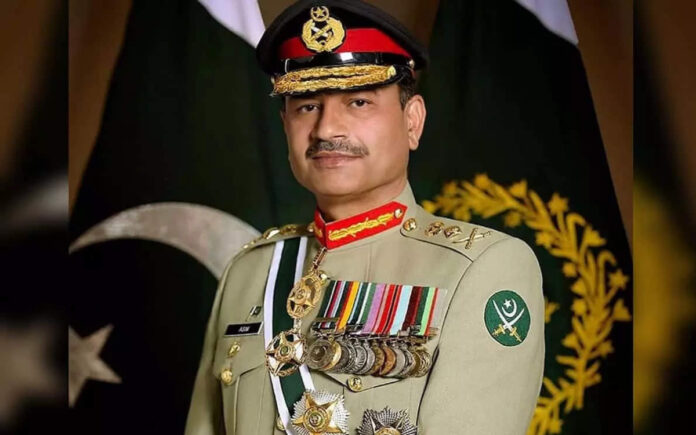Islamabad: Pakistan Army Chief General Asim Munir issued a stern warning on Thursday against attempts to destabilize the cash-strapped nation, asserting that the armed forces will thwart any efforts to create chaos and safeguard national integrity. His comments followed a wave of social media comparisons between Pakistan’s current situation and the 1971 Bangladesh crisis, where a popular uprising toppled the government.
“If someone tries to create chaos in Pakistan, by God, we will stand before him. No power in the world can harm Pakistan because this country is built to last,” General Munir was quoted as saying by the Inter-Services Public Relations (ISPR), the army’s media wing.
Speaking at a conference of Islamic clerics, General Munir reaffirmed the military’s commitment to maintaining peace and stability in the country. He urged religious leaders and scholars to promote tolerance and unity within society, advocating for the rejection of extremism, corruption, and discrimination.
The army chief also criticized the role of social media in spreading “anarchy” across the nation. He emphasized the need to uphold the principles of Islamic Sharia and the Constitution, while condemning extremism and criminal mafias that support terrorism. “There is no coercion in religion,” General Munir reiterated, echoing Islamic teachings.
Touching upon regional issues, General Munir highlighted Pakistan’s longstanding support for Afghan refugees and urged the Afghan Taliban to maintain peaceful relations with Pakistan. “We are explaining to them (Afghan Taliban) not to oppose their neighbour, brother Islamic country, and long-time friend for the sake of the Khawarij fitna (Pakistani Taliban),” he remarked, referencing Pakistan’s demands from Kabul.
Also Read | Cyprus Prepares to Offer Sanctuary as Middle East Tensions Escalate
General Munir also addressed the ongoing Kashmir dispute, describing it as an “incomplete agenda” between Pakistan and India.
Prime Minister Shehbaz Sharif, who also spoke at the event, praised the unprecedented cooperation between the government and constitutional institutions. “I want to say this without hesitation that in my 40-year-long political career, I have never seen the level of cooperation between the government and the constitutional institutions that exist today,” he stated. The Prime Minister also reflected on the nation’s collective shortcomings since 1947 and called on the public to learn from past mistakes.



